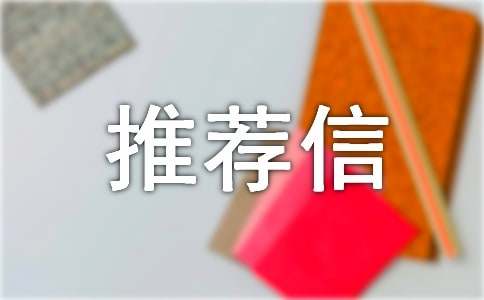你會寫推薦信嗎
每年,有多少青年才俊想出國,因為沒有好的推薦信而拿不到好大學的offer?每年,又有多少留學生畢業出去找工作,因為沒有好的推薦信而臨門一腳射空了?哪樣的推薦信寫得好,哪樣的推薦信沒有寫好,諸位寫推薦信的學生和老師都知道嗎?以前曾經也有些不認識的學生冒失地往我信箱里發來推薦信和自我陳述,拜托我看看。我看了以后發現大多數沒有寫好。我讀了一些關于寫推薦信的資料,總結出一些東西和體會。

學生請老師寫推薦信,首先要試探老師愿意不愿意寫,通過老師的態度來判斷他能不能寫好推薦信。比如有的老師非常熱情地答應,非常愿意幫忙;而有的老師態度冷淡,話中帶有保留,那么學生應該不必勉強這種帶有保留的老師。但是有一點必須強調的是:自己的直接導師必須出示推薦信,否則在用人單位眼里看來就是"red flag",看到這種情況(沒有導師推薦信)就槍斃。
老師只要答應了請求,一般不會寫壞話。在Kathy Baker的At the Helm: A Laboratory Navigator一書里,作者從用人者的角度介紹到:"You will seldom receive an overtly bad recommendation. Candidates will usually request recommendations only from people who think they will give a good report. In addition, most people who would write a bad recommendation will inform the candidate."但是不寫壞話就夠了嗎?Kathy Baker說:"A P.I. may write a less-than-honest recommendation to make sure that the candidate finds a job, i.e., to be sure that the candidate leave the P.I.'s lab...But usually, even the most desperate person will not be totally dishonest and will couch their problems in telltale phrases hidden among the compliments."也就是說,有的導師雖然看似在說好話,但其實錦里藏針,把一些話潛伏在句子里面!也就是說,話中有話!讓我們閱讀書上舉出的例子:
Reading Comprehension: Success in 20 Minutes a Day里面舉出一個例子:"Nocole Bryan usually completes her work on time and checks it carefully. She is a competent lab technician and is familar with several ways to evaluate test results. She has some knowledge of the latest medical research, which has been helpful".這個雖然沒有說一句壞話,但是絕對不是好的推薦信!用人單位看到這樣的推薦信保證當場槍斃了。
那么,哪樣寫才是好的推薦信呢?Reading Comprehension: Success in 20 Minutes a Day里面舉出另外一個例子:"Nicole Bryan always submits her work promptly and checks it judiciously. She is an excellent lab technician and has mastered several ways to evaluate test results. She has an extensive knowledge of the latest medical research, which has been invaluable."
兩段話的字面意思幾乎一樣,但是為什么差別這么明顯?讀者們,你們體會到了嗎?
再比如At the Helm: A Laboratory Navigator一書里,作者舉例:"I am writing in support of XX for his application to graduate school. XX was in my lab for 3 years and was a conscientious worker, always doing what was suggested. Although his work resulted in only one senior author paper, he is an author on two other papers in the lab and was always willing to help the more junior lab members."這看上去是一封好的推薦信,也許很多想出國的學生得到的推薦信也是這樣的`,但是事實是這恰恰是一封壞的推薦信!
好的推薦信除了沒有“話中有話”以外,還表現在“吹捧”的程度上,網上資料How to Write a Good Recommendation (The Chronicle of Higher Education, Januray 31, 2008)說:"As one associate professor of English noted, 'The level of praise is so high that any assessment short of 'brilliant' can look tepid. That means that any consideration of a candidate's weakness is probably a kiss of death."也就是說,美國人就是喜歡“吹”的,推薦信里面不寫高度贊揚的話,被推薦人就很難得到職位。中國人喜歡用"good"來形容一個人,但是在美國看推薦信的人那里,good就是一般,outstanding, excellent, brilliant, extraordinary, superb才是好!
推薦人寫信的語氣語調(tone)也非常重要。壞的推薦信采用一種不瘟不火、有氣無力、帶有保留、有種不大認識被推薦人的感覺的語調,這種語調叫做cool, lukewarm, tepid。有這種語調,保證被推薦人會吃大虧。而寫得好的推薦信正面、富有激情(passion),如燃燒的火焰。這正如收到推薦信后,用人單位打電話給你老板。雖然你的老板沒有說你壞話,但是有氣無力,沒有富有激情地力薦你說你是百年不遇的千里馬缺你不行,你就是拿不到工作。
寫推薦信要注意:不要只是吹捧而忘了舉出實例、給出細節!比如說,推薦人說該生科研能力強,那么請給出個例子并舉出具體的數字!網上資料How to Write a Good Recommendation (The Chronicle of Higher Education, Januray 31, 2008)說:"The dean of academic affairs we talked with said that details help tp give 'a rationale for the superlatives--not just that 'Dr. Smith is the greatest academic of her generation' but why she is special."該資料還說:"Details can help those reading the letters get and idea of the quality of the relationship, and how the referee regards the applicant beyond the effusive praise that is often standard."知道這個道理后,需要寫推薦信的人可以主動給推薦人提供自己最新的背景材料,如簡歷、情況總結、發表文章等,并和推薦人多溝通,商量你要強調自己什么。
最后,看推薦信的人不但看推薦人寫了什么,而且看推薦人沒有寫什么!在Kathy Baker的At the Helm: A Laboratory Navigator一書里,作者從用人者的角度介紹到:"Look for things not said. Look for the qualities you do require."比如,很多準備出國的人在自己起草的推薦信里面都漏掉“積極參加系里的學術報告和國內學術會議”這一句話,還有的人缺乏對于人相處、合作的描述。再比如,出國讀研究生主要需要科研能力,但是如果推薦信上寫該生花了大量時間在下象棋上或者唱卡拉OK上,或者助人為樂上,卻只字不提該生的科研能力、科研成果和成果的意義,這有用嗎?
寫推薦信的學問很多,好的推薦信和壞的推薦信,一看就能看出來。這篇博文是寫給學生和老師看的。如果學生讀者發現自己老師沒有寫好推薦信,歡迎把本文推薦給老師。如果覺得有啟發,歡迎學習并推薦給同學。
除了找誰寫推薦信之外,還要注意要多加強溝通、談心。也就是說現在找工作有很多廣告,找工業界工作的寫法和找學術界的寫法不一樣,就算是找學術界的工作,你是報物理化學專業還是報納米材料專業,強調的側重點都不應該一樣,也就是說從道理上講,不能用一封同樣的推薦信敲開截然不同的大門,這里面,負責人的推薦人(導師)應該有針對性地寫,根據不同的職位要求和范圍來為被推薦人度身定做推薦信。于是這就要被推薦人與推薦人多溝通:自己需要申請什么樣的工作,對方強調什么,并且準備好材料(如文章列表、簡歷等)給推薦人看。
【你會寫推薦信嗎】相關文章:
剛剛畢業的你,真的會寫Resume嗎?07-05
你會寫英文簡歷嗎?英文簡歷有五大注意禁忌09-26
你適合創業嗎?09-17
你的財富級別你知道嗎?09-19
近期你會被解雇嗎?11-01
你適合攻讀MBA嗎08-18
測你善于理財嗎09-05
心理測試:你花心嗎09-11
你屬于這“90%”嗎09-05
你適合創業嗎測試08-18